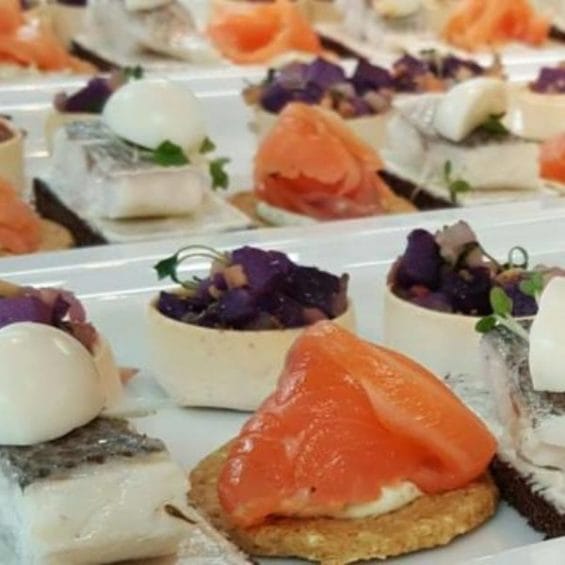Most of us don’t give a second’s thought to our in-meeting snacking, but science suggests which brain food for effective meetings we should be selecting.
The brain uses about a fifth of the body’s calories meaning how you choose to fuel it can significantly impact its performance.
With the pressure of organising an off-site meeting, it can be tempting just to make sure food is available when your delegates might want it. However, the right food at the optimum time could be the key to success for your work event.
Optimum brain food for effective meetings
Getting the right mix of food at the right point in the day can help you achieve optimal brain function and improved concentration at work meetings. Maintaining a steady blood sugar level throughout the day by eating smaller but more regular portions can help avoid the sugar crashes that contribute to a loss of concentration and energy loss.
Antioxidant nutrients, such as vitamins C, E and B (found in fruit, nuts and eggs respectively), as well as omega-3 fatty acids (found in oily fish), are believed to have positive effects on cognitive function. These food groups are helpful in regulating levels of healthy antioxidants with potentially harmful free radicals and combating inflammation caused by the overconsumption of heavily processed foods.
Over time, a varied and healthy diet is widely believed to have long-term health benefits. Cutting-edge studies have revealed that some foods such as vegetables, fruit, fish, wholegrains, nuts and seeds prevent harm to the brain and support cognitive wellbeing.
Healthy breakfasts provided by Møller Institute, including cereals and fresh salmon, give you the brain food for effective meetings later in the day, with fresh fruit – unadulterated by added sugar or fruit juice – is available throughout the day.
At every meal at Møller Institute, meat, fish and vegetarian options (which are regularly also vegan) are available for a perfect balanced diet.
Cocoa for concentration?
The benefits of fruit, vegetable and unsaturated fats in oily fish are well established but snacks for business meetings should not avoid more indulgent food groups altogether.
The brain uses glucose, a type of sugar, as a primary source of fuel. Studies have shown that a high serving of glucose may have a fast, short-term benefit on mental ability.
Furthermore, high-quality dark chocolate and cocoa powder are packed with the brain-boosting compounds of flavonoids, caffeine and antioxidants. Flavonoids in chocolate are understood to group in areas of the brain responsible for learning and memory.
Foods such as blueberries can help improve short-term memory while wholegrains can boost concentration, both of which also make easy meeting snacks.
Drawing inspiration from the Møller Institute’s Danish heritage treats such as Havregrynskugler (Danish oat balls with cherries, cocoa and coffee) and Risalamande (Danish rice dessert) topped with baked pineapple provide the perfect antidote to waning energy levels.
Crafted for you
Møller Institute’s Executive Chef Alex Bigot understands that food and drink is more than simply providing an exciting culinary experience. The right nourishment that provides stable blood sugar levels and expertly mixes food groups can have a significantly positive effect on attention span, fatigue levels, recall, memory, and imagination.
Alongside his experienced team, Alex skillfully crafts complete menus of inspiring meals and snacks to ensure your delegates remain sharp, focused and able to achieve their full potential at your important off-site meeting.



